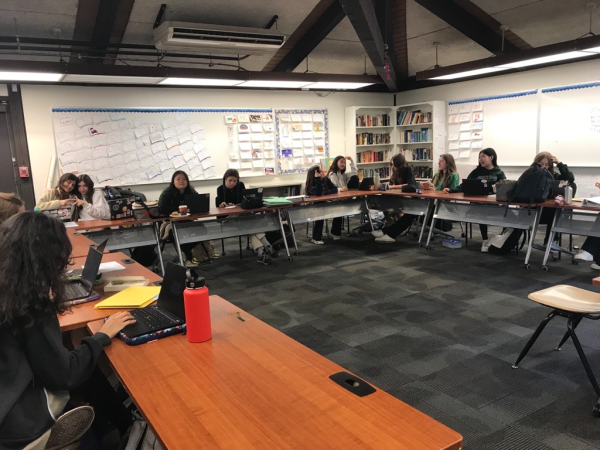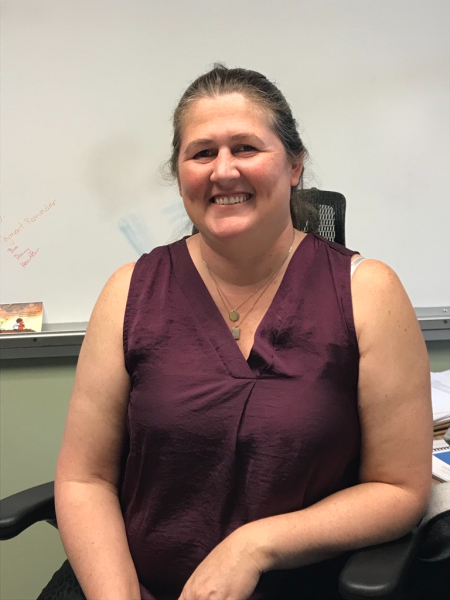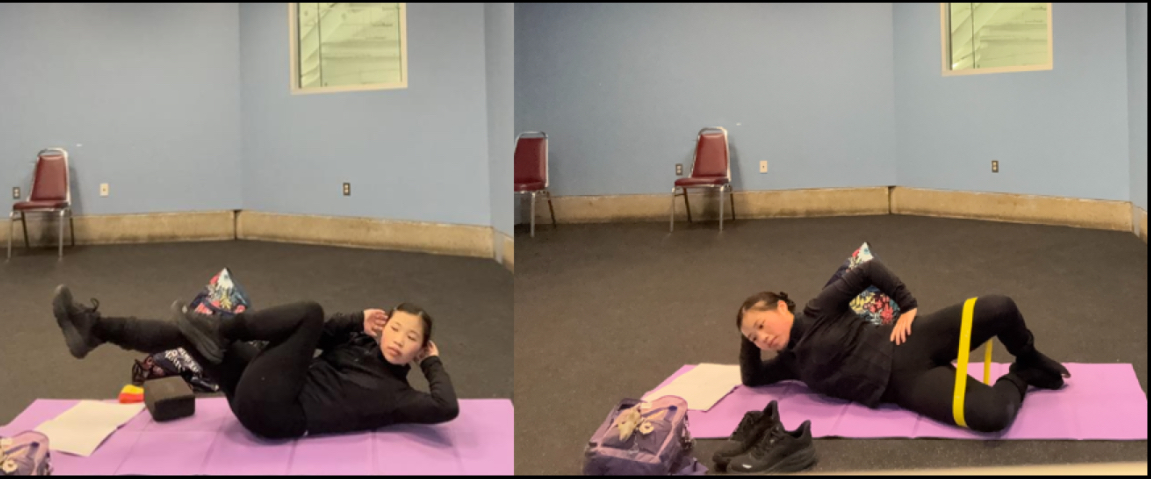
The clock struck 2:00, and middle schoolers dashed to claim their favorite seat in the H Block study hall. Scattered around Room X, sprawled on the couch, perched at the tall tables, and cross-legged on the floor, students whipped out crumpled stacks of papers covered in pencil marks and tilted open their laptops. Latin Teacher and study hall proctor, Dr. Diane Pintabone, began taking attendance as some students burst in through the creaking sliding door between rooms X and W, hoping they wouldn’t be marked tardy. Within a few minutes, everybody had settled in, and PowerPoints, half-finished essays, and the occasional game of Roblox began to pop up on computer screens. The room was filled with the gentle hum of rapid typing, relaxed scribbling, and whispers of conversation and repressed laughter, as is frequent in study hall.
Study hall is meant to provide students with an opportunity to develop independent work and study habits for deep and meaningful learning, especially as they prepare for high school. Learning to manage time efficiently and independently will be key to students’ success. “That’s my hope for students that go to Westridge,” said Director of Lower and Middle School Dr. Zanita Kelly.

(Micki M.)
Every student’s schedule includes two H or D blocks of study hall per rotation. Some students choose an additional study hall as their elective. Study hall is a built-in place for students to complete their homework before leaving school. “It was always noted that [study hall] was something we needed, especially in the middle school,” said Ms. Farrell Heydorff, Lower and Middle School Dean of Student Activities. “When we think about learning strategies and study skills, one of the things we were [saying] is allowing for time.”

(Micki M.)
Creating time for students to complete homework is one thing, but making sure students can use that time effectively is another. Amelia H. ’28 said, “If I have a lot of work, and right after, I have [extracurriculars], [I’ll] try to get a lot [of work] done in study hall.”
In order for students to take advantage of the time, study hall proctors remind students to spend the first ten minutes of study hall planning for the next 60 minutes by checking their email and Canvas and updating their planners. Students are also supposed to arrive with all the materials they need during those 70 minutes.
In the second semester, the rules are relaxed, and students have increased privileges such as using headphones for school-related projects or listening to music. These new rules also let students work in groups if their proctor permits, make up previous assignments, and meet with teachers if they have a time-stamped note.
Despite the rules and guidelines around study hall, being productive can be challenging. Students cited noise levels as the biggest hurdle to productivity. The most frequent problem reported by students was the noise level.
“I feel like I can’t do my work with other people screaming, and it’s really hindering my academic performance,” said Sophie S. ’28.
Meanwhile, Sofia R. ’28 would like the freedom to chat; but she acknowledges that noise levels can distract others, saying, “[I wish we were] able to talk to people, but not in a way that would make it a really loud environment.”
Minimizing distractions and helping students overcome their tendency to procrastinate is also important to helping students take advantage of study hall. One of the challenges is that different proctors enforce rules differently, which can vary the experience between students. Middle School English Teacher, Mr. John Cross, said, “Each proctor has a certain amount of autonomy. For example, if someone wants to see another teacher, it’s kind of up to the teacher proctoring the study hall.”
Some proctors have stricter rules to limit procrastination and non-related school work. While this can occasionally boost the amount of work completed, it can come at the cost of helping friends and classmates. Students in study halls with stricter rules acknowledge that they get more work done but would still prefer to have the privilege of talking to their friends and asking for help. “I think it helps when [study hall] is quiet,” Lillian P. ’29 said, “but then sometimes if I need help with something, I can’t ask someone.”
The location of study halls may also impact student productivity. Middle School History Teacher, Ms. Jennifer Irish, said, “I’d really love it if we were all together because being in separate classrooms…when students need to go see a teacher, we have no idea if they are available….If all the study halls happened in Mudd, then we would know where kids are, and it would be easier for them to meet other people.”
Though it’s unlikely that there is no one-size-fits-all solution for study hall, many students believe that having fewer restrictions on meeting with teachers and working across different study halls would be a benefit. “By allowing [students] a little bit of room, most of them do their work anyway,” Ms. Gigi Bizar, a Middle School History Teacher, said. “Most of them are self-motivated.”
Overall, study hall aims to help students get their work done, develop a foundation of study skills, and lessen students’ workloads at home. While study hall may not be used as productively as it could be for some students, most need it to balance their workload effectively. Most of the guidelines are intended to support students’ experiences. As Librarian and study hall proctor Stephanie Bolton puts it, “There is not one environment that is going to be best for all students. My hope is that even though you can’t make the best study environment for everybody that isn’t going to alienate either side, hopefully [everyone] will find a little bit of something that supports their studying methods.”




























![Dr. Zanita Kelly, Director of Lower and Middle School, pictured above, and the rest of Westridge Administration were instrumental to providing Westridge faculty and staff the support they needed after the Eaton fire. "[Teachers] are part of the community," said Dr. Kelly. "Just like our families and students."](https://westridgespyglass.org/wp-content/uploads/2025/03/dr.-kellyyy-1-e1748143600809.png)
























